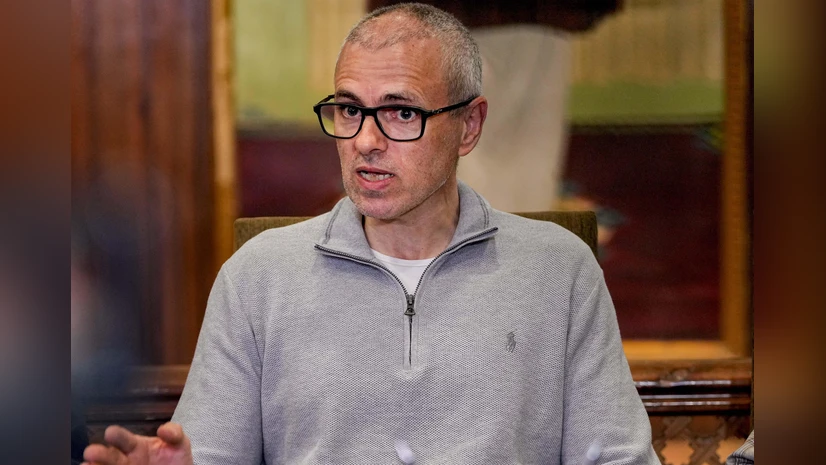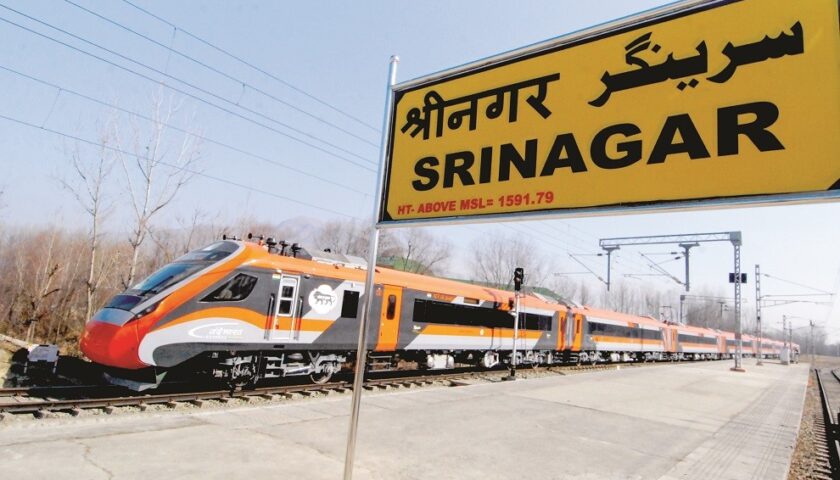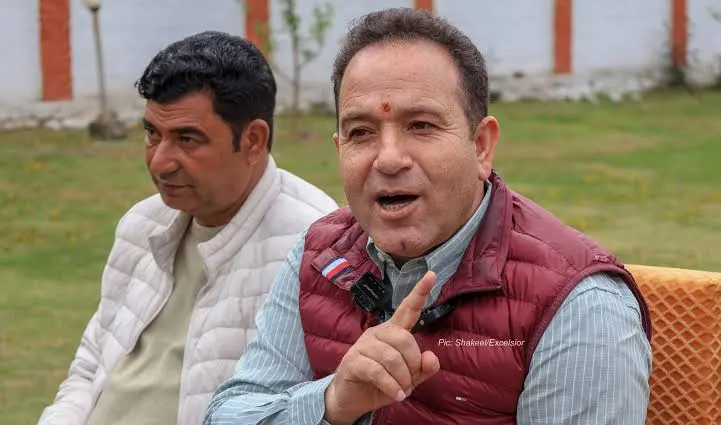Omar Abdullah Vows to Scrap PSA After J&K Statehood Restoration
By: Javid Amin | 18 October 2025
A Defining Promise for Post-UT J&K
In a politically charged statement, Omar Abdullah, Chief Minister of Jammu and Kashmir, has vowed to revoke the Public Safety Act (PSA) immediately after the restoration of statehood.
The announcement, made during a press conference in Srinagar on October 18, 2025, has sent ripples across political and civil society circles. It is one of the most direct commitments by any mainstream leader in J&K in recent years — linking democratic restoration with civil liberties.
“When we released our party manifesto, I made it clear that several promises can only be implemented after Jammu and Kashmir regains statehood,” Omar Abdullah declared.
This move positions the Jammu & Kashmir National Conference (NC) as a flagbearer of political and legal reform in the region.
Understanding PSA: The Controversial Law at the Core
The Jammu and Kashmir Public Safety Act, 1978 is a preventive detention law that allows authorities to detain individuals without trial for up to two years.
Over the decades, PSA has been widely criticized by civil society groups, human rights organizations, and international observers for:
-
Enabling arbitrary detentions
-
Bypassing standard judicial safeguards
-
Being used to silence political dissent and youth activism
While successive governments have defended PSA as a security measure, critics argue that it undermines fundamental rights and deepens public alienation.
📌 Notably, PSA cannot be applied in any other part of India — it is unique to J&K.
Omar Abdullah’s Political Commitment
By pledging to scrap PSA through an ordinance, Omar Abdullah has made one of his boldest political statements since regaining office.
Key Takeaways from the Press Conference:
-
PSA will be revoked without delay after statehood restoration.
-
The government will not wait for an Assembly session to legislate the repeal.
-
An ordinance will be issued immediately upon restoration of state powers.
This approach signals an intention to act swiftly and decisively, reflecting the NC’s attempt to rebuild trust between the government and citizens after years of political disempowerment.
“We are not going to waste time debating something that has been debated for decades. PSA will go,” Omar stated firmly.
The Link Between Statehood and PSA Repeal
J&K currently operates as a Union Territory, meaning major legislative powers — including those related to security laws — rest with the Centre.
Restoration of full statehood would empower the elected government to repeal or amend local laws, including PSA.
By making this announcement now, Omar Abdullah is:
-
Pressuring the Centre to expedite statehood restoration
-
Rallying public support behind a clear and measurable political promise
-
Distinguishing his party from both the Centre and other regional players
This calculated move may reshape the electoral and political narrative in the coming months.
Civil Society & Human Rights Response
Civil society groups, student organizations, and rights defenders have long campaigned for the repeal of PSA.
Reactions from Rights Groups:
-
Amnesty International has repeatedly called PSA a “lawless law.”
-
Local NGOs argue that thousands have been detained under PSA over the years, including minors.
-
Journalists and activists see this announcement as a symbolic victory for civil liberties.
A Srinagar-based rights advocate commented:
“If Omar delivers on this promise, it will be one of the most significant democratic reforms in J&K in decades.”
Political Reactions Across the Spectrum
PDP’s Response
The Jammu and Kashmir Peoples Democratic Party (PDP) cautiously welcomed the statement but demanded a written commitment and legislative follow-through.
“We’ve heard such promises before. This time, it must be backed by action,” said Waheed-ur-Rehman Parra.
BJP’s Response
Leaders of Bharatiya Janata Party (BJP) criticized the statement, calling it “irresponsible” and “dangerous” from a national security perspective.
A senior BJP spokesperson stated:
“PSA is a critical tool in maintaining law and order in a sensitive region. Repealing it could embolden separatist elements.”
Congress & Other Opposition
Opposition parties expressed measured support, viewing the move as part of a broader democratic restoration process.
Historical Context: PSA and Political Suppression
PSA was enacted in 1978, originally to combat timber smuggling. Over time, it evolved into a political and security tool.
| Year | Event | Impact |
|---|---|---|
| 1978 | PSA introduced | Focus on timber smugglers |
| 1990s | Armed insurgency | PSA widely used for detentions |
| 2010 | Youth unrest | PSA applied to minors |
| 2019 | Post-Article 370 abrogation | Surge in detentions |
| 2025 | Omar vows repeal | First formal political commitment |
Many of those detained under PSA are never charged or tried, leading to a sense of legal helplessness in communities.
Legal Roadmap for Repeal
Repealing PSA involves two key steps after statehood restoration:
-
Ordinance Route:
-
As CM, Omar can recommend an ordinance repealing PSA.
-
The Governor must approve it, making it law temporarily.
-
This bypasses immediate legislative debate.
-
-
Legislative Ratification:
-
The ordinance must later be ratified by the J&K Assembly, giving it permanent effect.
-
This provides legal and political legitimacy to the repeal.
-
Legal experts believe this strategy could avoid bureaucratic delays and signal swift reform.
Electoral & Political Implications
This announcement comes as the statehood debate intensifies, with both the Centre and regional parties under pressure.
Omar’s PSA repeal promise could:
-
Strengthen NC’s electoral appeal among youth and civil rights constituencies
-
Position the party as pro-reform and pro-rights
-
Force rivals like PDP and Congress to clarify their stance on PSA
-
Polarize security vs. rights debates, especially in national discourse
This is not just a legal reform — it’s a political masterstroke aimed at reshaping the narrative.
National & International Attention
The international human rights community has frequently flagged PSA as a major concern in J&K.
A firm political commitment to repeal PSA:
-
Could improve India’s human rights image globally
-
Strengthen democratic credentials in the region
-
Defuse some international criticism post-2019
“Repealing PSA will be a confidence-building measure for both the local population and the international community,” said a Delhi-based foreign policy analyst.
Public Sentiment: Between Hope and Skepticism
On the streets of Srinagar and across the Valley, the announcement has sparked cautious optimism.
For families whose loved ones have spent months or years in preventive detention, PSA is not just a law — it’s a symbol of pain, loss, and fear.
A 27-year-old student from Pulwama said:
“If they really scrap PSA, it will be like taking a heavy stone off our chest.”
But many also remain skeptical, citing decades of political promises that never materialized.
Challenges Ahead
While the promise is bold, its implementation won’t be easy. Key hurdles include:
-
Centre-State friction over security prerogatives
-
Possible legal challenges from opposition parties or security agencies
-
Bureaucratic resistance within the administrative apparatus
-
The need to rebuild a security framework without PSA
Omar’s government would need to balance security and liberty, ensuring that repeal does not lead to a law-and-order vacuum.
Bottom-Line: A Pivotal Moment for J&K
The promise to revoke PSA marks a turning point in Jammu and Kashmir’s political journey.
For decades, PSA has been emblematic of state control, arbitrary detention, and erosion of civil rights. Omar Abdullah’s commitment to scrap it — tied directly to statehood restoration — is as much a political message as it is a legal pledge.
Whether or not this promise becomes reality will depend on:
-
The Centre’s willingness to restore statehood,
-
The NC’s ability to navigate legal and administrative hurdles, and
-
The political will to prioritize rights over rhetoric.
If delivered, this could be one of the most significant democratic reforms in J&K since 2019.




